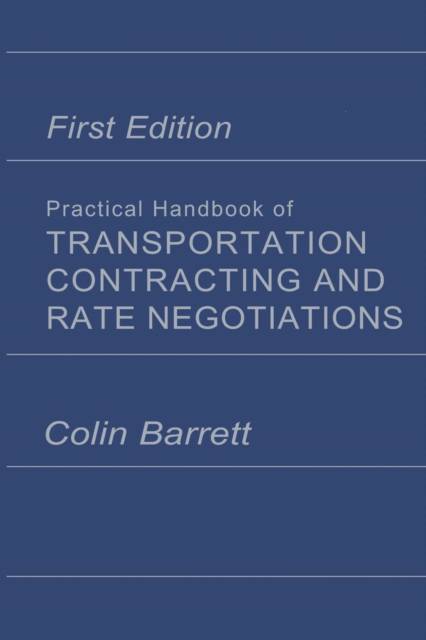
- Afhalen na 1 uur in een winkel met voorraad
- Gratis thuislevering in België vanaf € 30
- Ruim aanbod met 7 miljoen producten
- Afhalen na 1 uur in een winkel met voorraad
- Gratis thuislevering in België vanaf € 30
- Ruim aanbod met 7 miljoen producten
Zoeken
Practical Handbook of Transportation Contracting and Rate Negotiations
1st Edition
Colin Barrett
Paperback | Engels
€ 106,95
+ 213 punten
Omschrijving
In the time-worn traditions of the transportation industry, ship- pers and carriers regard one another as enemies. There is, to be sure, a certain degree of validity to such a viewpoint. An element of conflict will naturally be present in any vendor-purchaser relationship. The two, after all, are seeking distinctly different things from that relationship; and to a con- siderable extent each party's success in realizing its own goals must be achieved at the expense of the other. At the same time, however, viewing that relationship as strictly zero-sum-a gain by one side always resulting in an equal and offsetting loss by the other-is a gross misconception. It overlooks the key reality that, no matter which party comes closest to its own objectives, the relationship, and the business transactions that flow from it, must ultimately benefit both. Without that level of mutual benefit the relationship will simply not exist (or will soon founder if it somehow does come into being); for it is only the self-interest of the two parties that impels them to establish and continue that relationship at all. In transportation, however, this element of mutuality-the attitude that the parties share a common interest in nurturing their relationship-is often forgotten. Instead of working to- gether as, fundamentally, partners in a business transaction from which both expect to derive gains, they dedicate the bulk of their energies to fighting, rather than cooperating, with one another.
Specificaties
Betrokkenen
- Auteur(s):
- Uitgeverij:
Inhoud
- Aantal bladzijden:
- 270
- Taal:
- Engels
Eigenschappen
- Productcode (EAN):
- 9781468476491
- Verschijningsdatum:
- 12/06/2012
- Uitvoering:
- Paperback
- Formaat:
- Trade paperback (VS)
- Afmetingen:
- 152 mm x 229 mm
- Gewicht:
- 385 g

Alleen bij Standaard Boekhandel
+ 213 punten op je klantenkaart van Standaard Boekhandel
Beoordelingen
We publiceren alleen reviews die voldoen aan de voorwaarden voor reviews. Bekijk onze voorwaarden voor reviews.











